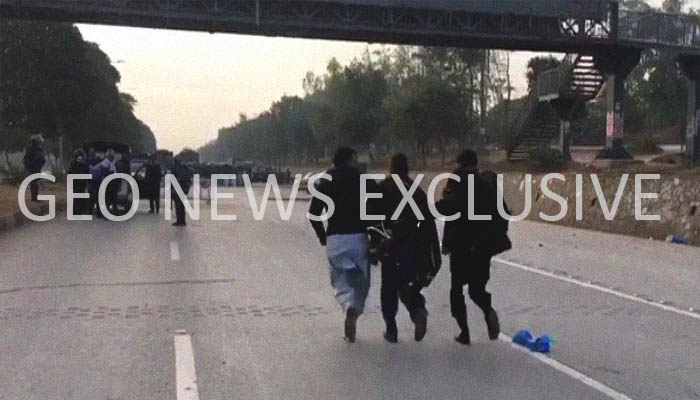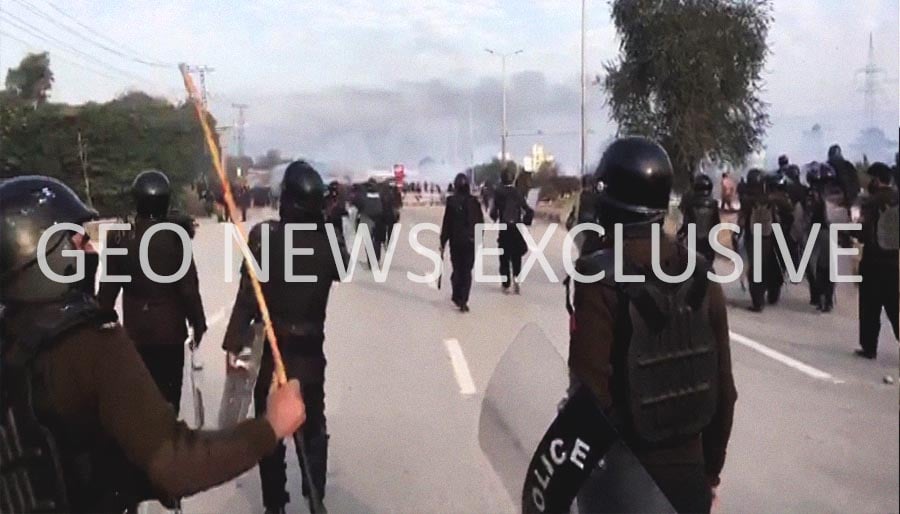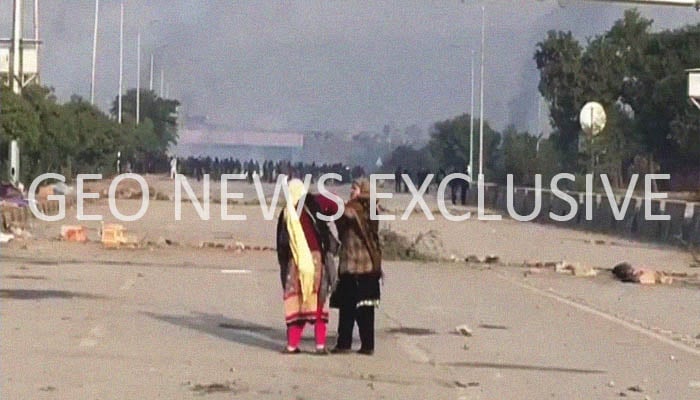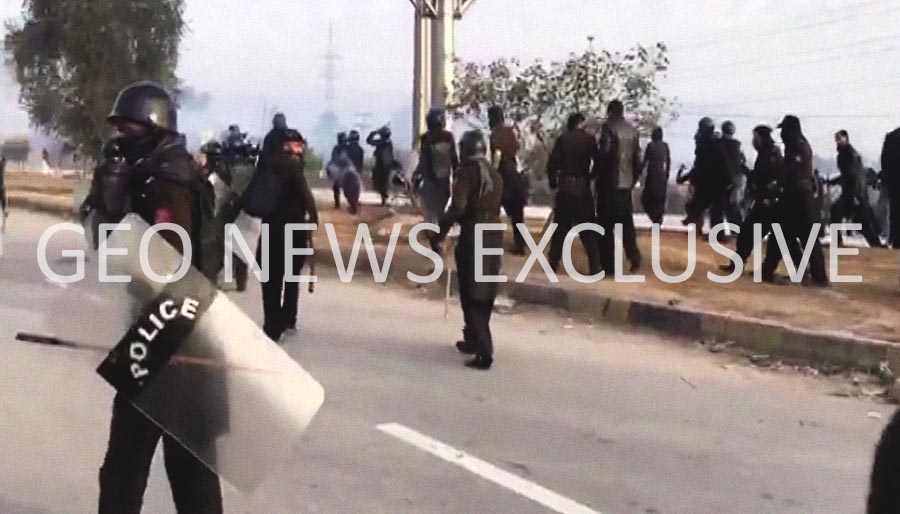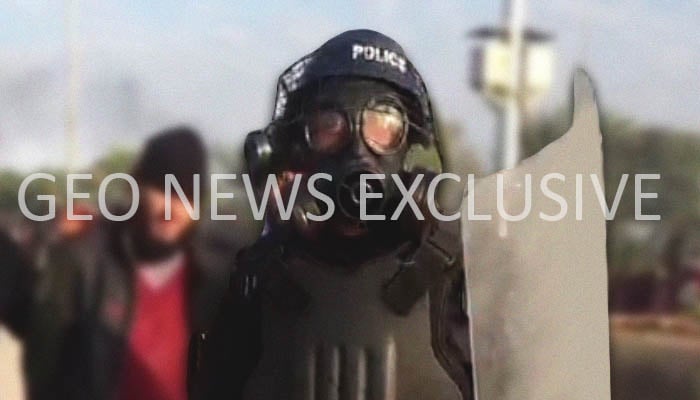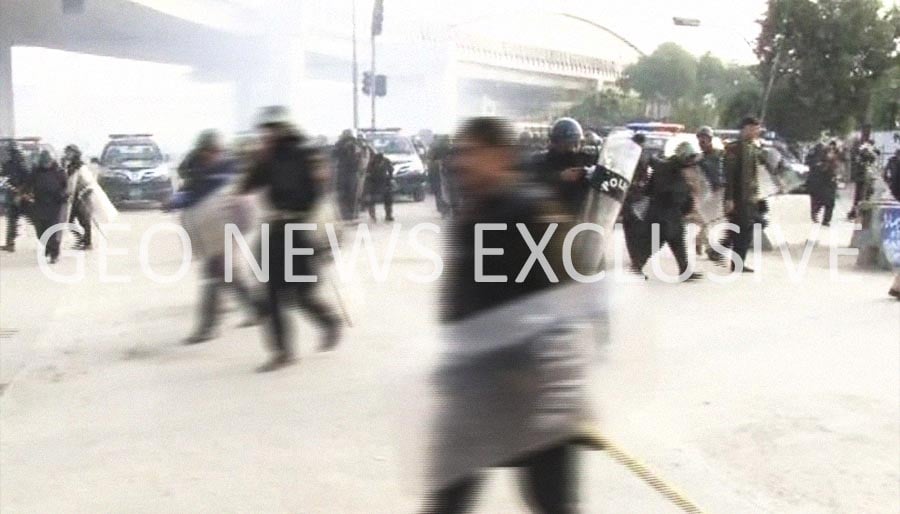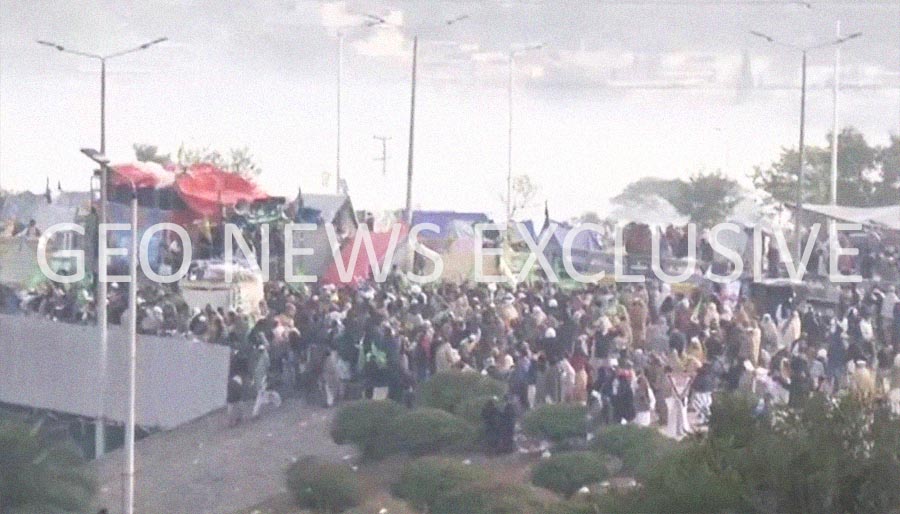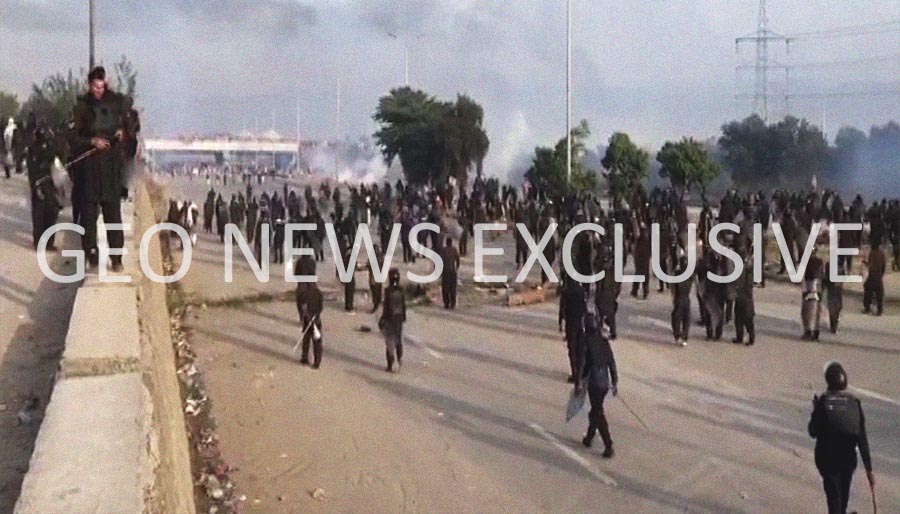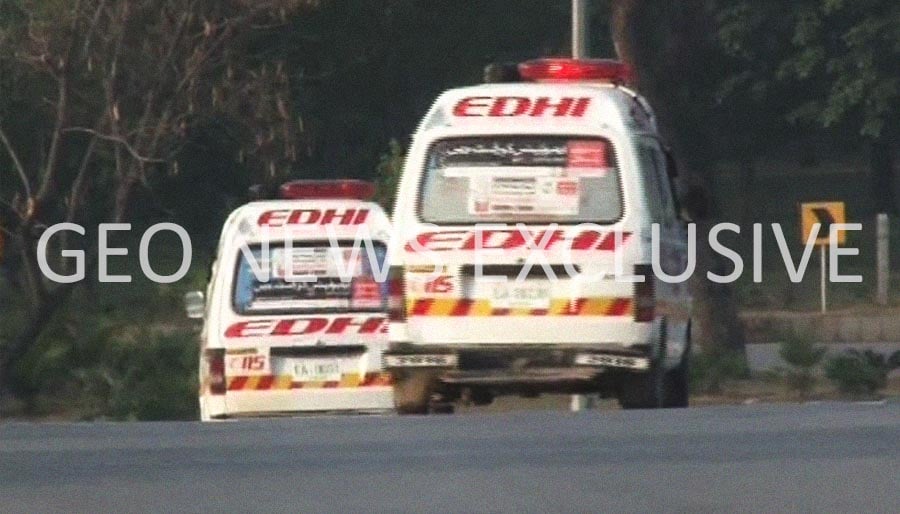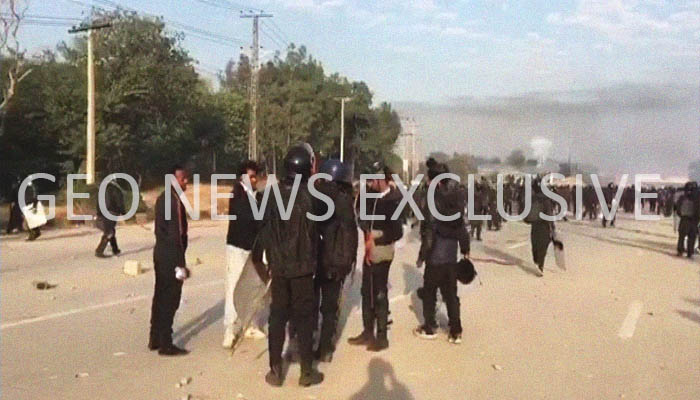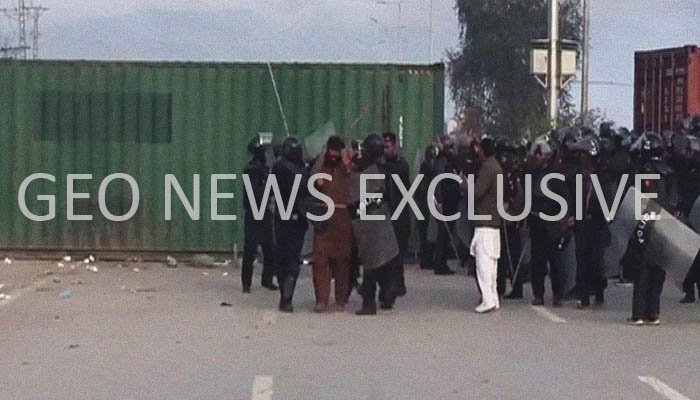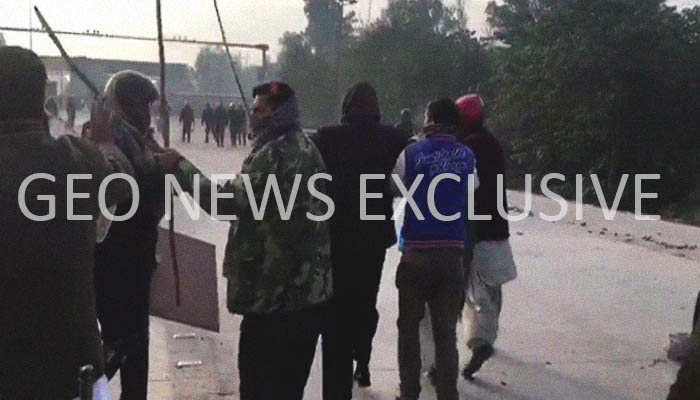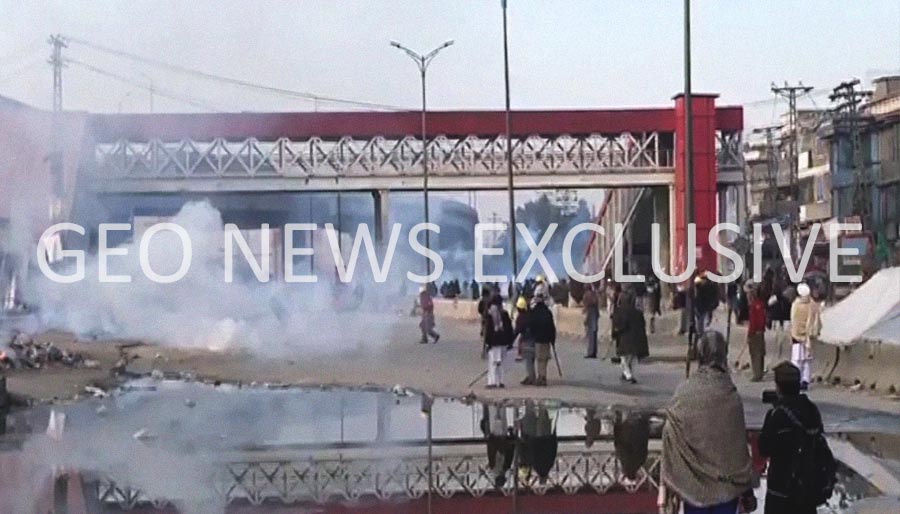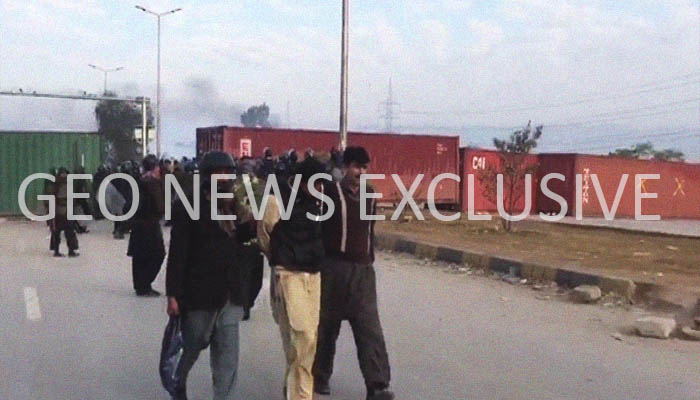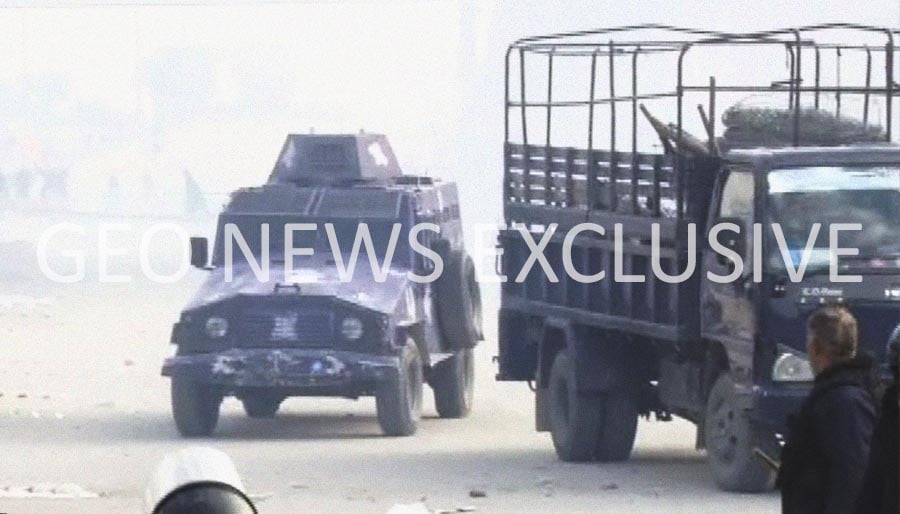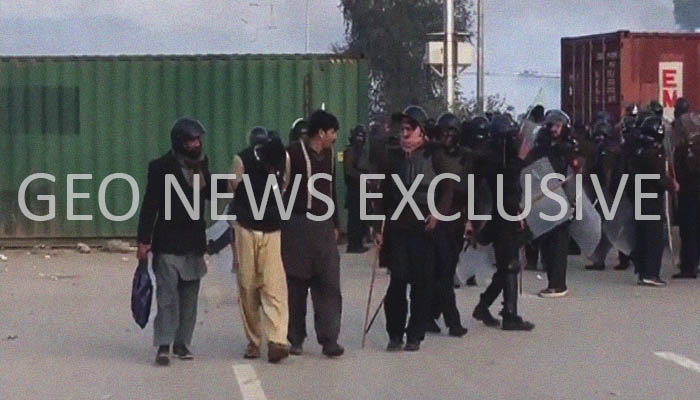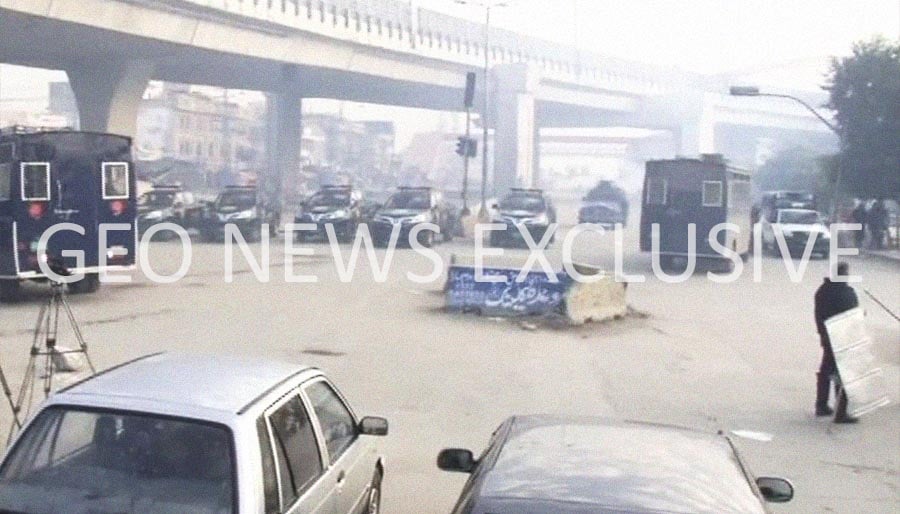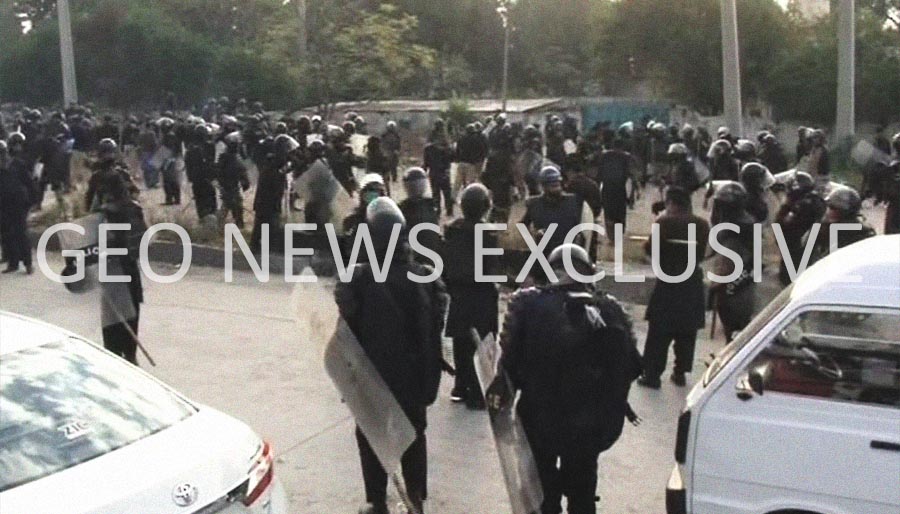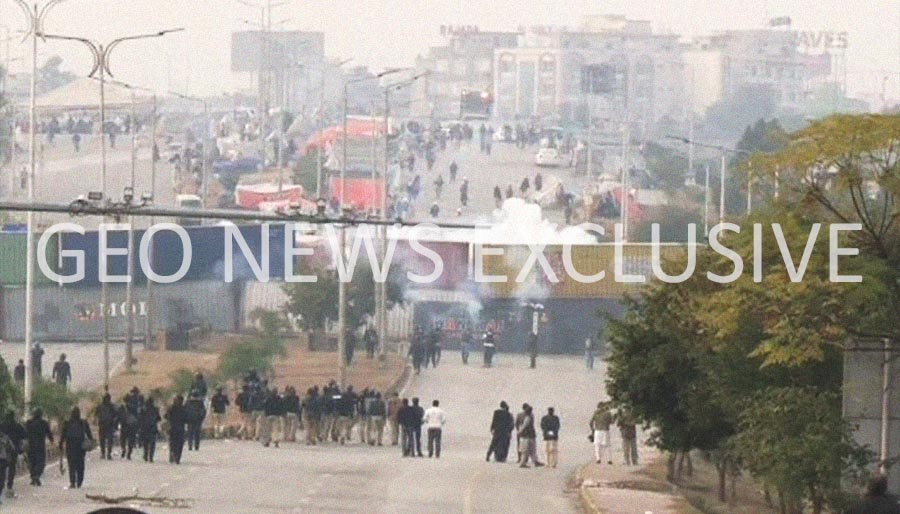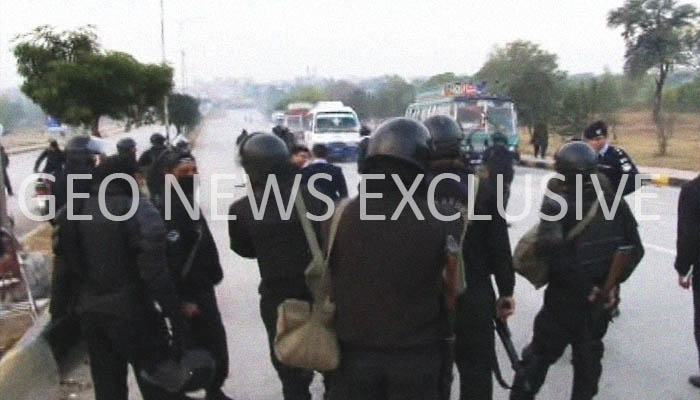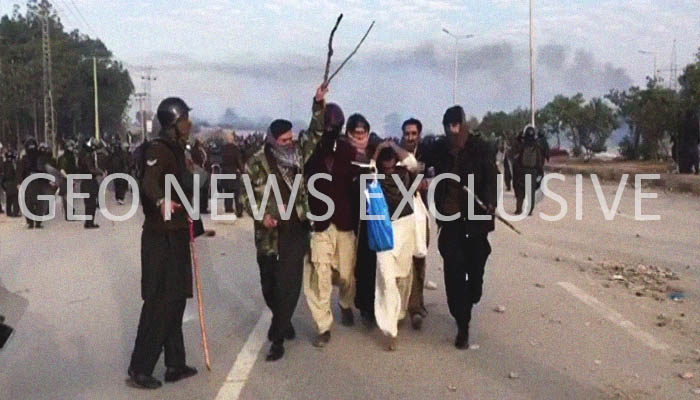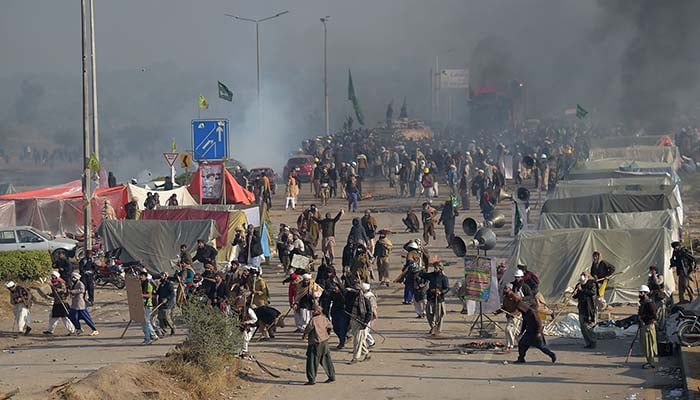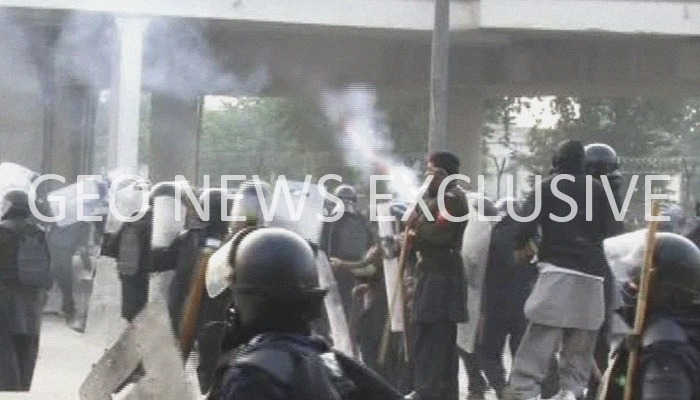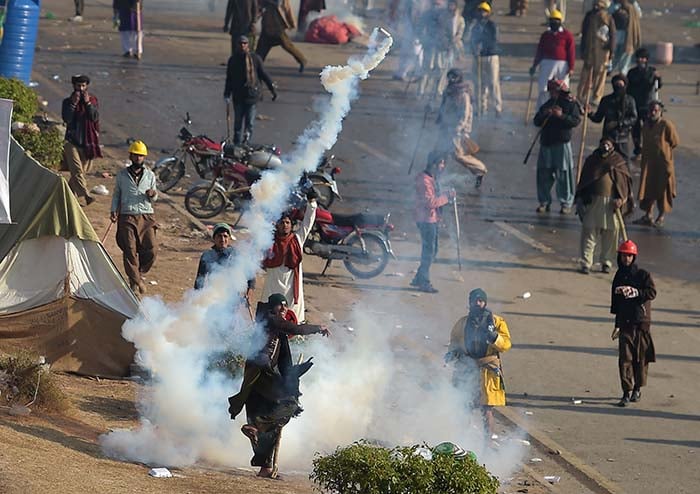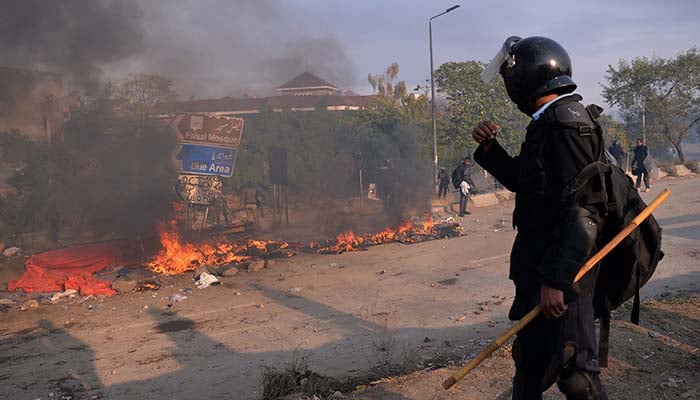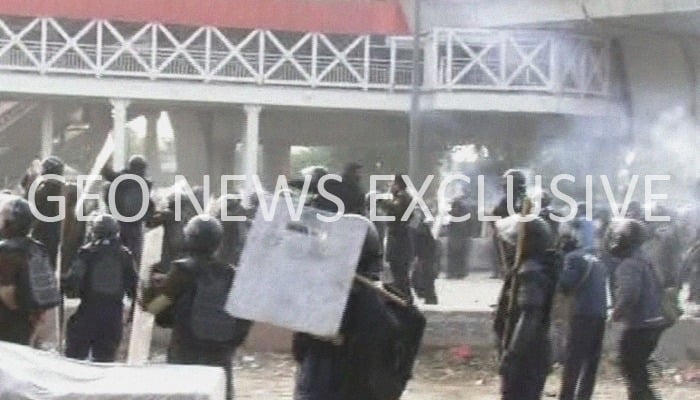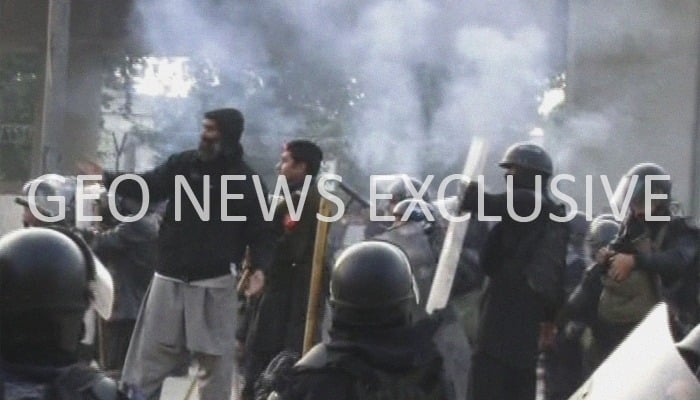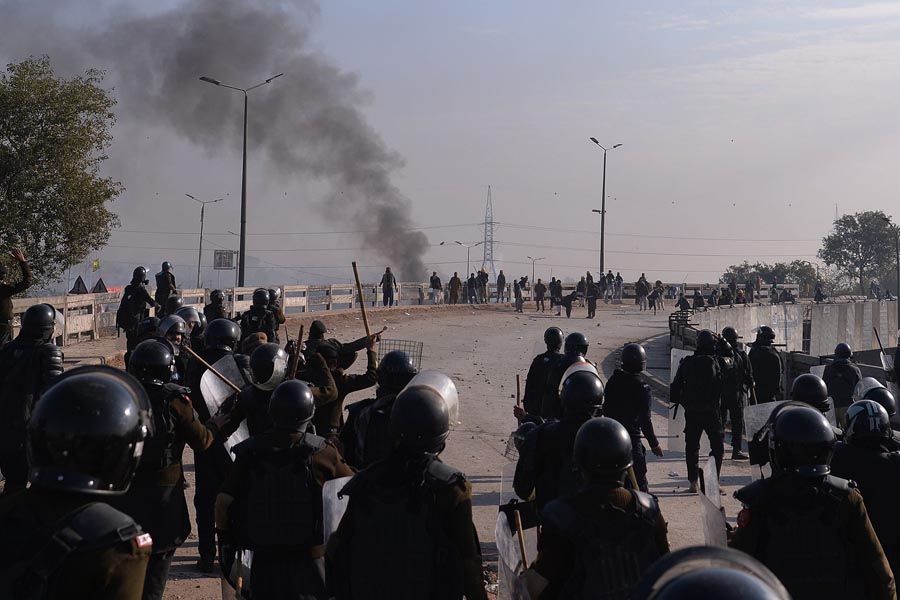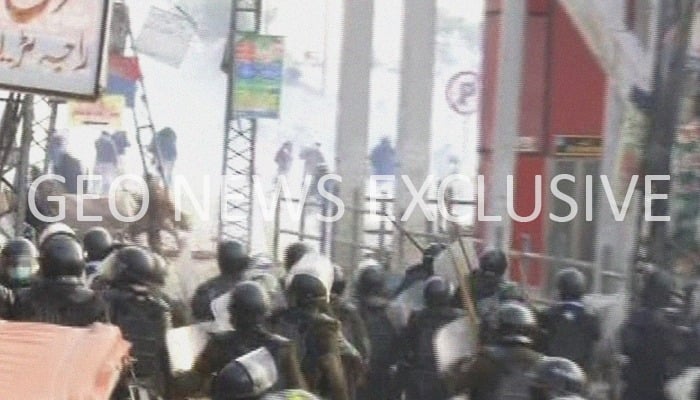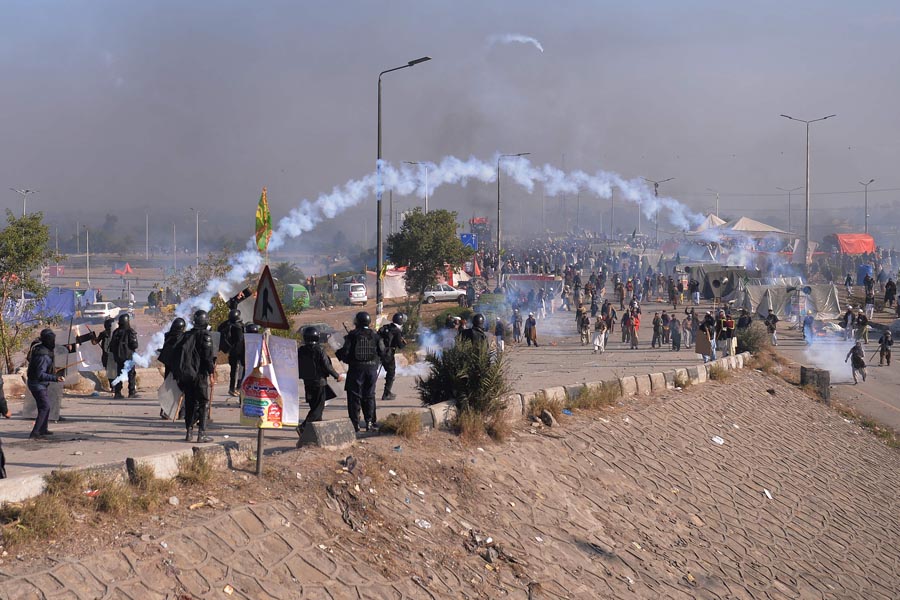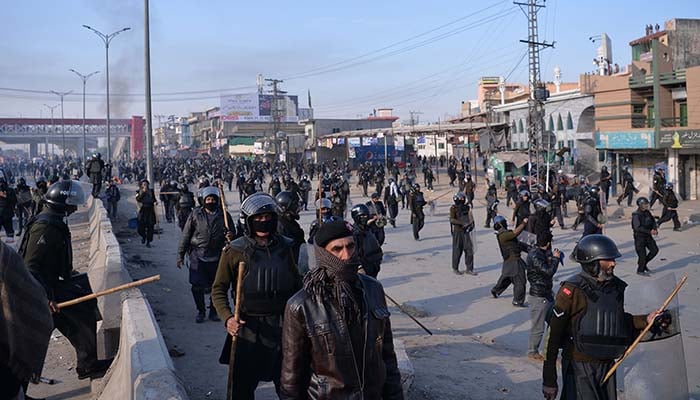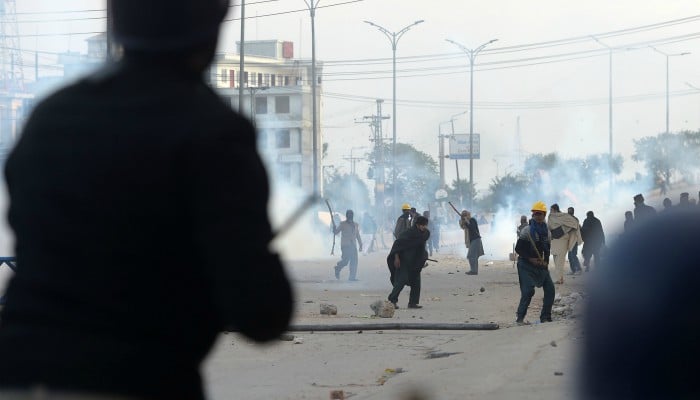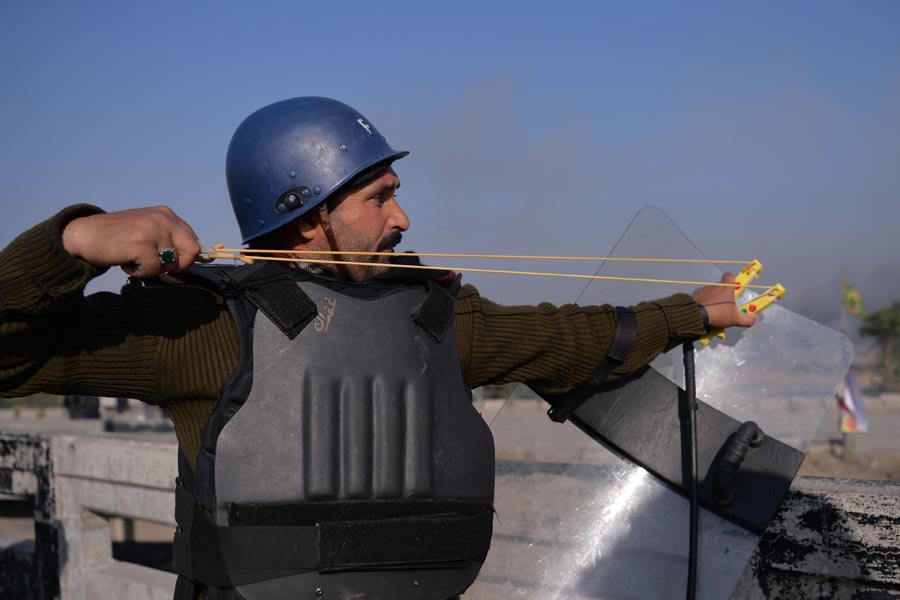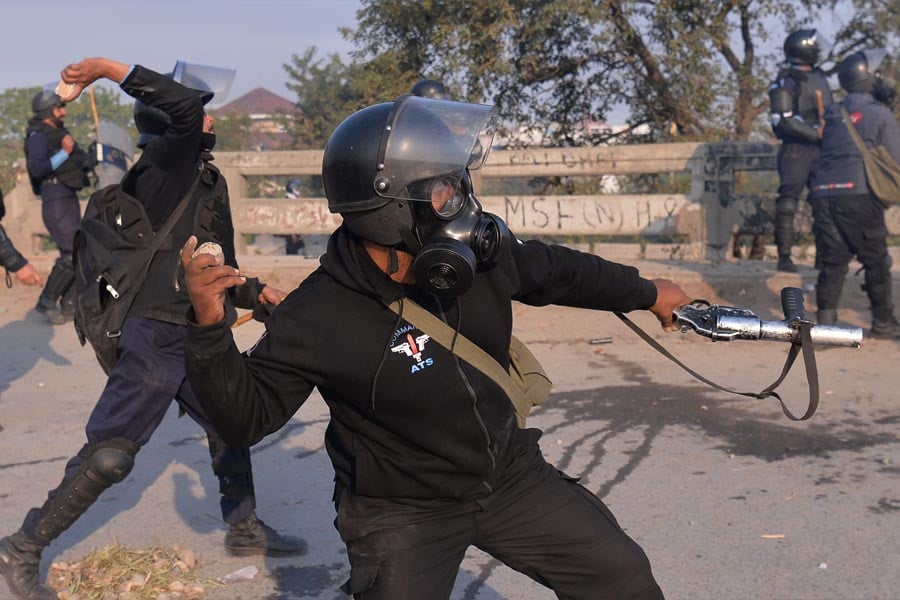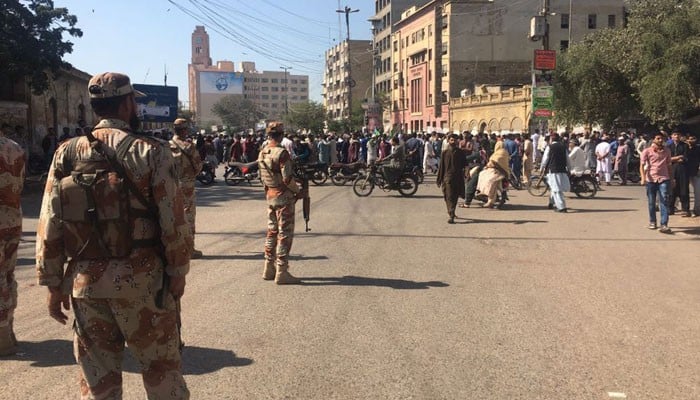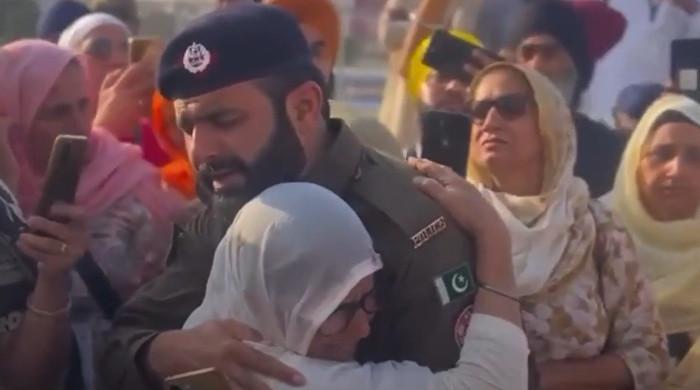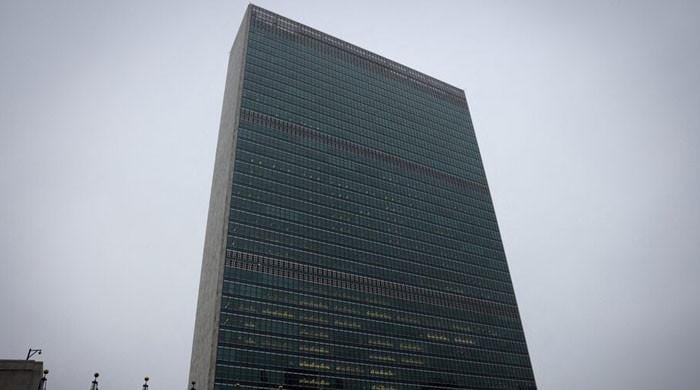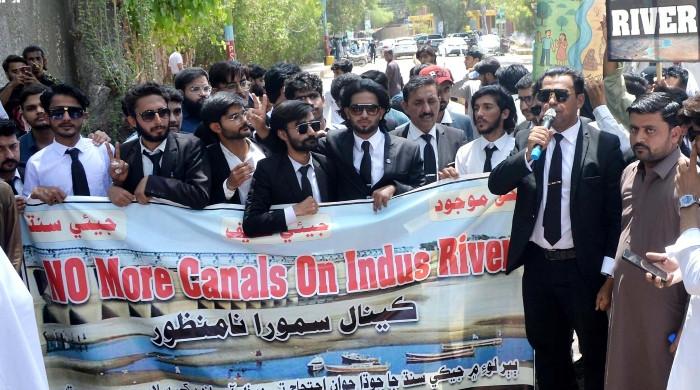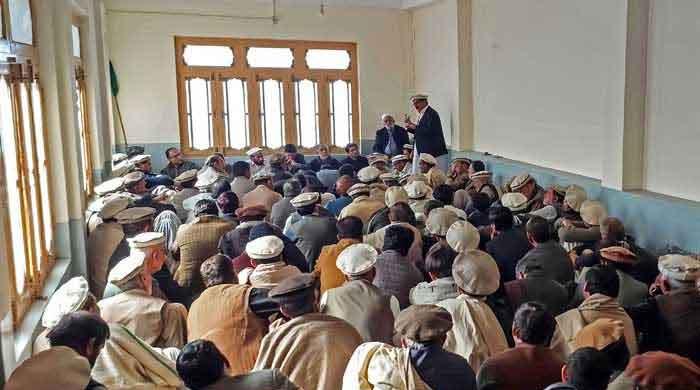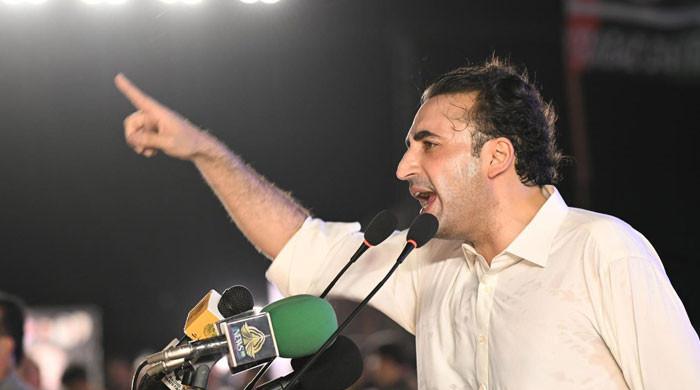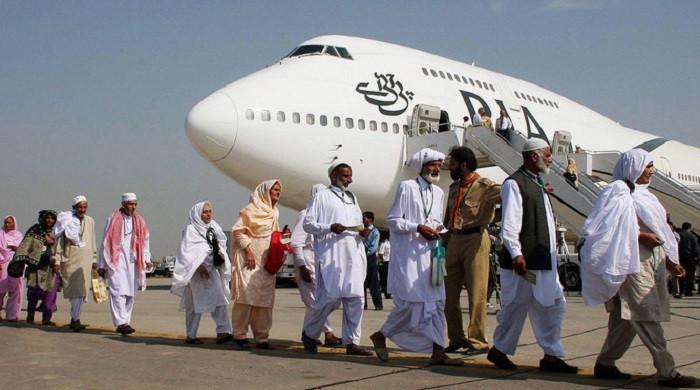Islamabad protest: Over 250 people injured, Pakistan Army summoned
The government has summoned the army under Article 245 in aid of civil power
November 26, 2017
ISLAMABAD: The Ministry of Interior issued early Saturday night a statutory regulatory order (SRO) to authorize the deployment of the Pakistan Army to aid civil power to control the law and order situation in the Islamabad Capital Territory.
The SRO — issued in light of the request of the Islamabad Capital Territory Islamabad Administration, dated November 25, issued by the ministry under Article 245 of the Constitution, read along with Sections 4 and 5 of the Anti-Terrorism Act and section 131-A of the Cr.P.C — authorized "the deployment of sufficient number of troops" as "to be determined by the Commander 111 Brigade" in effect from November 25 until further orders.
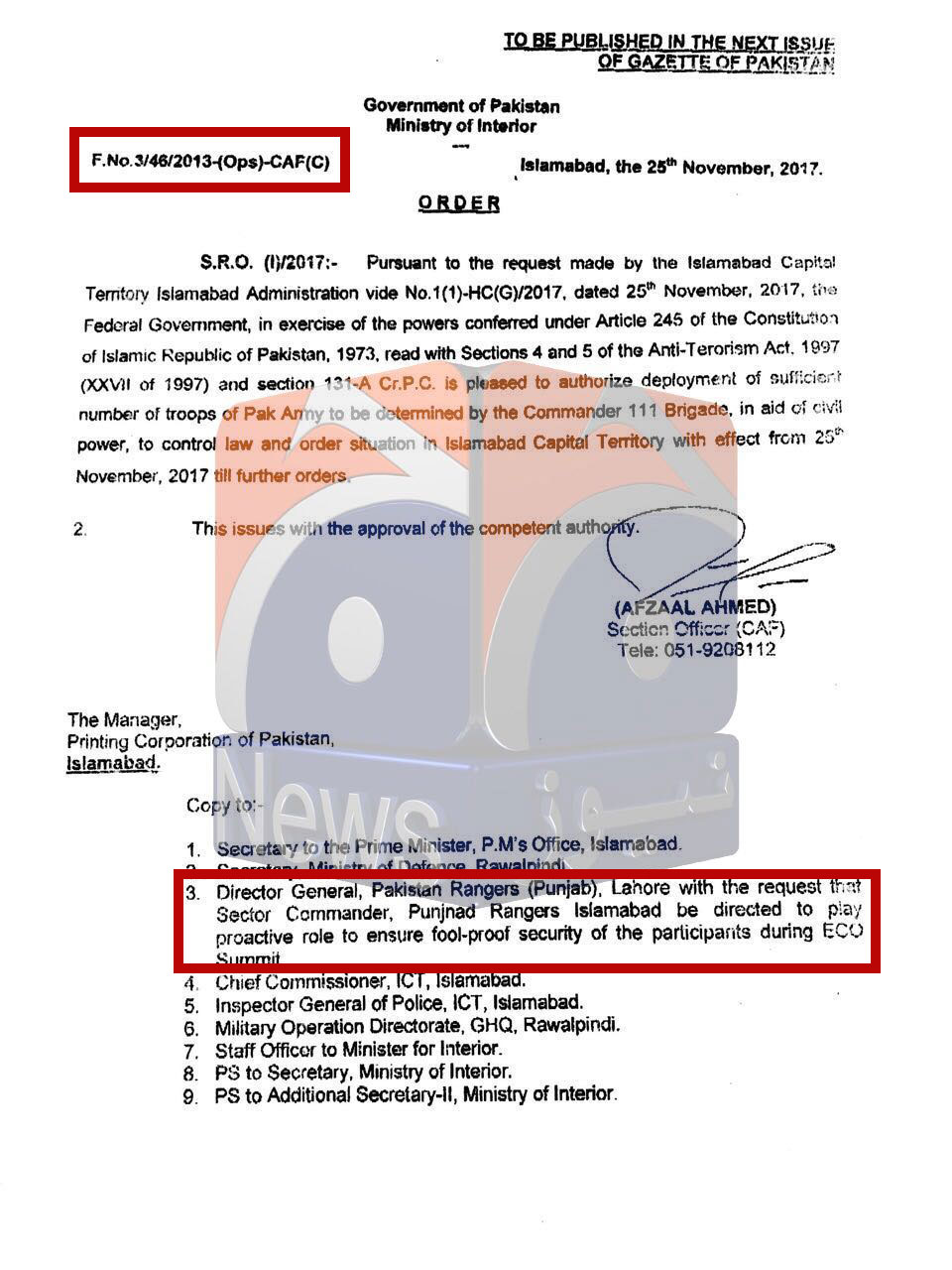
After typographical errors were spotted in the SRO — leading to rumours circulating on social media suggesting it was fake, the government verified the document's authenticity.
Sources said Prime Minister Shahid Khaqan Abbasi took the decision to summon the Army and the interior ministry issued the notification after the premier's approval.
In response, however, the Pakistan Army said while its troops are "fully ready to perform the assigned task in line with its institutional obligations", there are "few aspects meriting deliberation prior to [the deployment".
The police force "has not been optimally utilized to its full capability" in "dealing with [the] protestors", the Army noted.
In addition, "Pakistan Rangers, backing […] police as 2nd tier force physically deployed with police in Islamabad, have not been given written instructions as agreed for their employment."
The Army added that its troops are "traditionally not just used for dispersal of crowd/protestors but to quell commotion".
Therefore, their deployment "needs to be clarified in the context of item 6 of Supreme Court judgment dated November 23, 2017, with regards to civil petition no 2983 of 2016 (Sher Jamal and others vs Wali Sardar and others)".
Also, the Islamabad High Court (IHC) "restrains [the] use of 'firearms' during clearance operation", as per Item 8 of its "judgment of writ petition number 3914 of 2017".
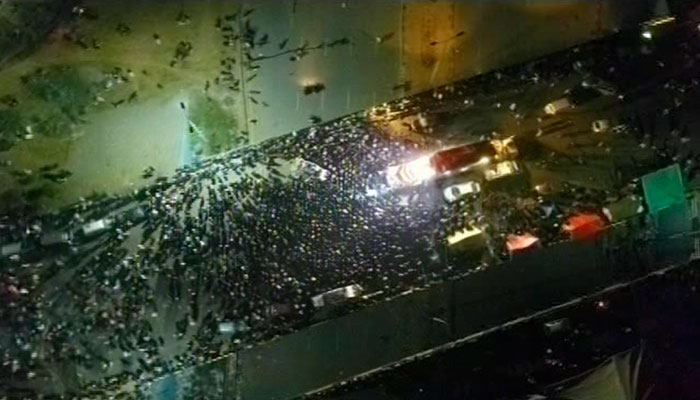
The operation that had commenced early Saturday morning to clear Faizabad Interchange from protestors staging a sit-in was put on hold later in the day — suspended at approximately 2:30 PM local time, according to reports.
The situation, nevertheless, remains tense in the federal capital.
Heavy contingents of police, the FC, and Rangers were deployed at the interchange, where they used tear gas and water cannons to disperse the demonstrators, who had paralysed the federal capital for almost three weeks.
At least 200 people — including 90 police and FC personnel — were wounded during the clashes.
PM, COAS to deliberate on Islamabad situation in meeting today
Prime Minister Shahid Khaqan Abbasi and Chief of Army Staff General Qamar Javed Bajwa will hold an important meeting today to discuss the situation in Islamabad, sources said.
The two will discuss the sit-in being held on the Faizabad Interchange by a religious group, which has entered its 21st day today despite the commencement of a security forces operation on Saturday.
The army chief was on a visit to the United Arab Emirates and cut short his trip to reach the country last night, sources said.
General Qamar Javed Bajwa also spoke with Prime Minister Abbasi regarding the sit-in in Islamabad on Saturday.
“COAS telephoned PM. Suggested to handle Isb Dharna peacefully avoiding violence from both sides as it is not in national interest and cohesion,” Major General Asif Ghafoor — the director-general of the Inter-Services Public Relations (ISPR) — tweeted on Saturday.
Interior minister chairs meeting
Minister of Interior Ahsan Iqbal chaired a meeting Friday night on the situation at Faizabad, sources said.
According to sources, the Islamabad administration and police have resisted conducting another operation during the meeting, which lasted more than two hours without a decision being reached.
Sources added that Iqbal will consult Abbasi if a decision was not reached during the meeting.
The chief commissioner of Islamabad, IG police, district commissioner, and others attended the meeting.
Protestors demand more resignations
Earlier, the protestors had demanded that the entire federal cabinet resign and said no one will present demands on their behalf.
They also said their committee will make a decision on negotiations and added that the administration of Islamabad and Rawalpindi will be responsible for their actions.
'Trying to ensure minimum loss'
Interior Minister Iqbal said Saturday afternoon the operation was being conducted on the IHC's directives and added that the court had ordered to end the sit-in in three days.
Iqbal stated that the government is willing to conduct negotiations at any time and appealed to the people to not cause chaos since it plays into the hand of international conspiracies against the country.
The interior minister further added that the security forces and administration are trying to ensure a minimum loss.
Attack on Zahid Hamid's house
Protestors attacked and entered the residence of federal Minister for Law and Justice Zahid Hamid in Pasrur.
At the time of the attack, the law minister and his family were not in the house.
The protestors of the religious parties have demanded the resignation of Hamid and have refused to negotiate till their demand is met.
Protestors enter Chaudhry Nisar's residence
Demonstrators also entered former Interior Minister Chaudhry Nisar's residence and set fire to the gate. However, he and his family were not at their residence at the time of the incident.
Nisar was subsequently shifted to a secure location in an armoured personnel carrier and police were deployed at his residence to safeguard it from any violence. A spokesperson for Nisar denied that he had left in an armoured vehicle, adding that the former minister had shifted to Islamabad a week earlier.
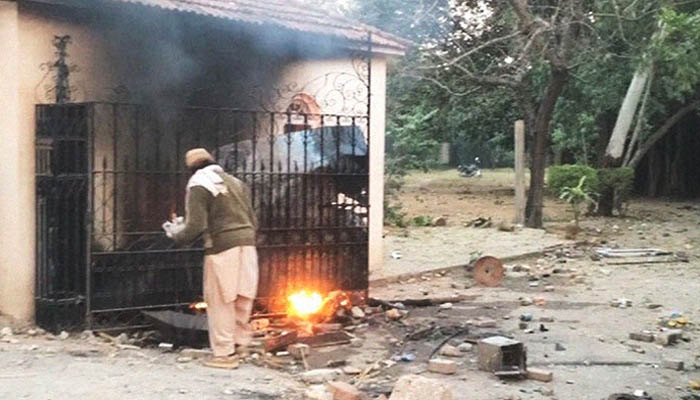
A building and a mobile satellite van located near Nisar's residence was also set ablaze.
Condemning the attack, opposition leader Khursheed Shah said attacking someone's home to force them to agree to demands is not part of Islam's teachings.
Whether it be the home of a minister or a civilian, respect is necessary, Shah stated, adding that leaders of religious parties should ask their workers to refrain from extremist measures.
MNA Javed Latif injured
Javed Latif — a member of the National Assembly (MNA) — was injured by protestors after he had gone to negotiate on behalf of the government.
Police said there was tension at the time of the negotiations and the lawmaker was safely escorted from the scene of the incident.
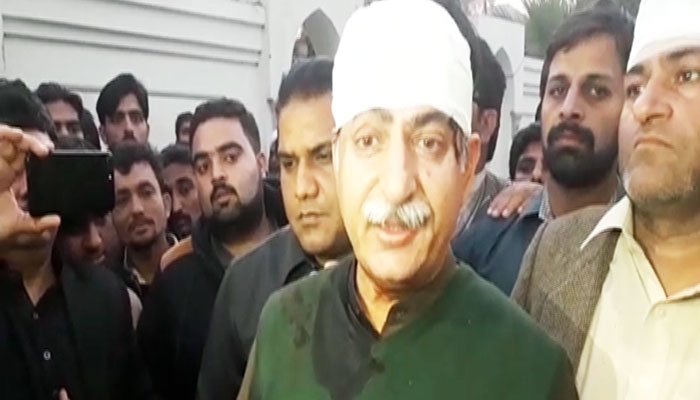
"We did not want to take action against the protestors and went to negotiate. I ask God to show [the protestors] the right path," said Latif.
Latif claimed his dera was also attacked by unidentified men and five of his workers were injured.
However, police said the MNA's house was not attacked.
Demonstrators attack media personnel
Media personnel covering the protests across the country came under attack in various cities. In Islamabad, a private channel's DSNG van was set on fire, while in Karachi, Geo News' team members were assaulted by protestors.
Geo News' correspondents Talha Hashmi and Tariq Abul Hasan were injured.
PBA condemns attack on journalists
The Pakistan Broadcast Association (PBA) condemned the attacks on members of the media during the coverage of the religious party's protests across the country.
In a press release issued Saturday, the association said violence against journalists and attacks on media vehicles will not be tolerated.
Protection of journalists is the responsibility of the state, the PBA said, demanding that the government take action against those who are violating laws.
The association condemned the burning down of a private channel's DSNG van in Faizabad, attacks on Geo News’ reporters in Karachi and two DSNGs in Lahore.
PBA also urged journalists to take all necessary safety precautions while performing their duties.
High-level huddle in Islamabad
The Islamabad administration, police, and Rangers held a meeting to review the situation at Faizabad Interchange on Friday evening, sources said.
DH Rangers Punjab, IG Islamabad, and the commissioner of the federal capital were in attendance, as well as some other senior officials.
The attendees discussed further course of action with regard to the operation.
The operation
An operation commenced on court orders following the expiry of the midnight deadline set by the district administration.
Prison vans and ambulances were present on the site, while the authorities used helicopters and drones for aerial surveillance. Around 8,000 security officials were part of the operation, including 3,000 FC personnel.
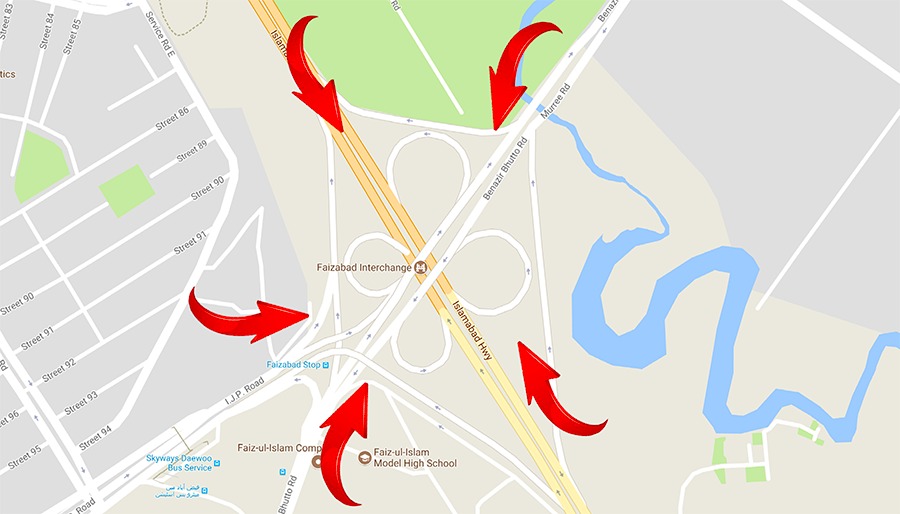
At least 250 people, including 90 policemen and FC personnel, were injured in the operation and admitted to different hospitals in the twin cities.
Of these, 190 of the wounded were brought in to PIMS Hospital for treatment throughout the day, a spokesperson for the facility revealed.
The injured people at PIMS comprised 73 and 64 officers of the police and FC, respectively, as well as 53 civilians, the spokesperson stated, adding that 60 wounded are currently under treatment.
On the other hand, 18 injured people were taken to Polyclinic and more than 50 were taken to the Benazir Bhutto Hospital.
Security officials conducted the operation against the protestors from five directions: Khanna Pul, GT Road, Islamabad Club Road, Express Highway, and Murree Road.
Protestors had blocked Bhara Kahu leading to Murree, Rawalpindi Expressway, and the Motorway. They also set fire to ten police vehicles in the area.
Schools situated at Murree Road were evacuated because of the tear gas shelling in the area.
Meanwhile, electricity and internet services in and around Faizabad were suspended.
Minutes before the operation started, the law enforcement agencies (LEAs) removed the barbed wire fences, which had surrounded the sit-in area, where protestors belonging to a religious party had been demonstrating for 20 days.
Commenting on the developments prior to the operation, Asmatullah Junejo — the assistant inspector-general (AIG) for police who is currently at the scene — had said the authorities "will conduct an operation against the protestors [in the sit-in] today".
Security officials and the LEAs had evacuated Faizabad ahead of the operation, Junejo added.
Geo News' correspondents at the scene explained that the markets and bus stops in Faizabad and its surrounding areas were completely empty, while police had banned entry for all unrelated persons.
"We will clear the [Faizabad] area today in line with the court's orders," Junejo said, adding that they "will try out best to make sure there is no fatality".
PEMRA orders news channels off air
The Pakistan Electronic Media Regulatory Authority (PEMRA) also ordered to take all news channels off air.
Following the directives, news channels were reported to be off the air in parts of the country.
Earlier, PEMRA had barred media from live coverage of Islamabad operation under Media Code of Conduct 2015.
The regulatory body had instructed media houses to ensure the security of their staff while the situation persists.
Meanwhile, some social media platforms — including Facebook, Twitter, and YouTube — were blocked on web browsers across the country.
Protests seep into other cities
Besides Islamabad, protestors and LEAs' officials are facing off in Karachi, Lahore, Faisalabad, Gujranwala, and Sambrial in Sialkot district.
In Karachi, the protestors blocked the roads leading to the Numaish Chowrangi, where they were staging their sit-in.
Protestors and workers of religious parties continue their protest in Lahore as of early Sunday morning.
With conditions tense throughout the city, sit-ins persist at more than four locations — comprising Thokar Niaz Beg, Babu Sabu Interchange (Sadequain Interchange), Begum Kot, and Shahdara Morr — while Charing Cross and Mall Road remain blocked by the demonstrators.
Earlier, protestors had blocked the railway track in Shahdara and roads around Datta Darbar.
No injuries were reported and several people were arrested but later released.
In Sambrial, protestors set tires alight on the Sialkot-Wazirabad road
BACKGROUND
As the midnight deadline given by the district administration expired Friday night, the protestors belonging to a religious party remained camped at the Faizabad Interchange overnight, continuing their stranglehold over the vital transport junction.
According to sources, Pir Nizamuddin Jami had contacted a government official before the deadline ended to request an extension, expressing hope that the issue could be resolved through mutual understanding.
Meanwhile, the interior ministry disclosed that four CCTV cameras — that were monitoring the demonstration — had their wires cut. The interior minister subsequently took notice of the matter and request a report be submitted.
Final warning
On Friday, the district administration of the federal capital had issued a final warning to protestors of a religious party — camped at Faizabad Interchange — telling them to disperse by midnight and threatening to take action if the order was not followed.
The warning was issued via a notification issued by the district magistrate.
The order by the district administration came after the IHC ordered the protestors Friday to relocate to Parade Ground within a three-day span.
The district administration had stated that the protestors had been camping illegally at a critical junction and that they have been issued a three-day warning earlier as well; hence, they should vacate Faizabad Interchange by midnight Friday.
If an operation was conducted to clear the interchange, it was said then, the responsibility would fall on the leadership and the participants of the protest, the administration added.
Prior to that, the Supreme Court on Thursday said when the writ of the state ends, decisions are made on the streets.
Difficulties for residents
The protest has resulted in severe issues for residents of the capital and Rawalpindi, who face traffic jams and mobility issues on a daily basis.
At least two casualties were reported due to ambulances being unable to pass through.
Talks between the government and protestors last Saturday and then on Monday had failed with no breakthrough in sight, as protest leaders continued demanding the Law Minister Hamid's resignation.
The protests are being held against the change in the finality-of-Prophethood oath in the law when the government passed the Elections Act 2017 last month.
The change — dubbed a clerical error by the government — was immediately fixed as an amendment was passed later.



